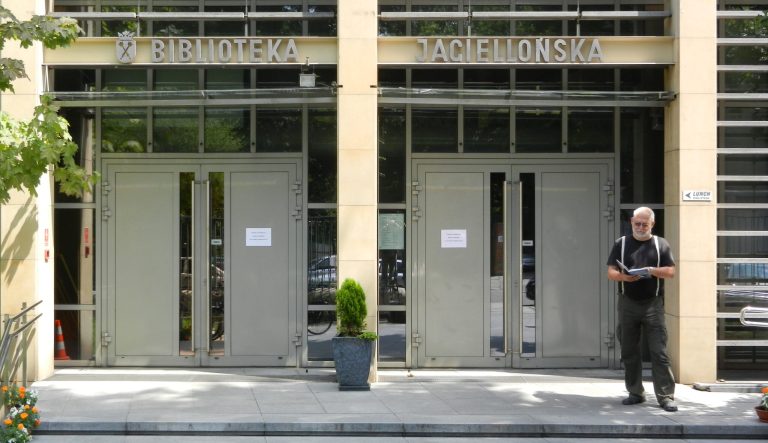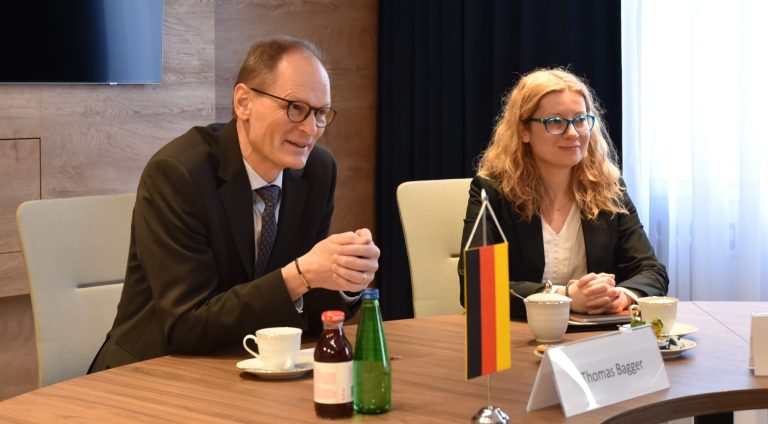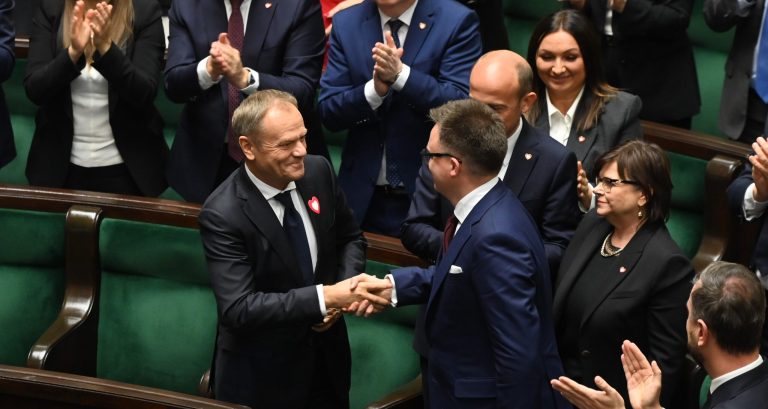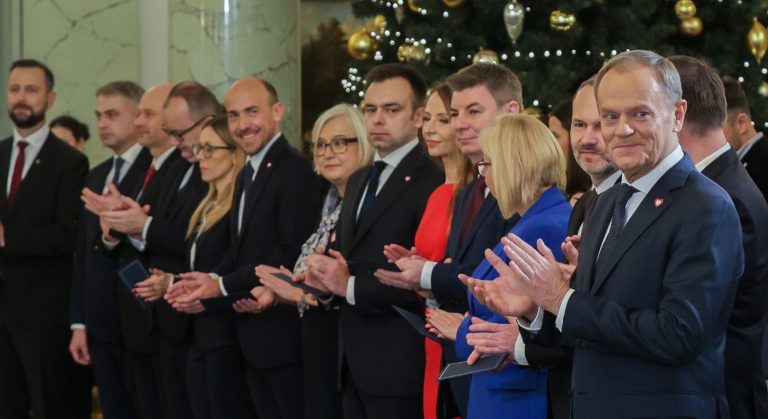Media “lie 24 hours a day” about inflation, says Polish central bank governor
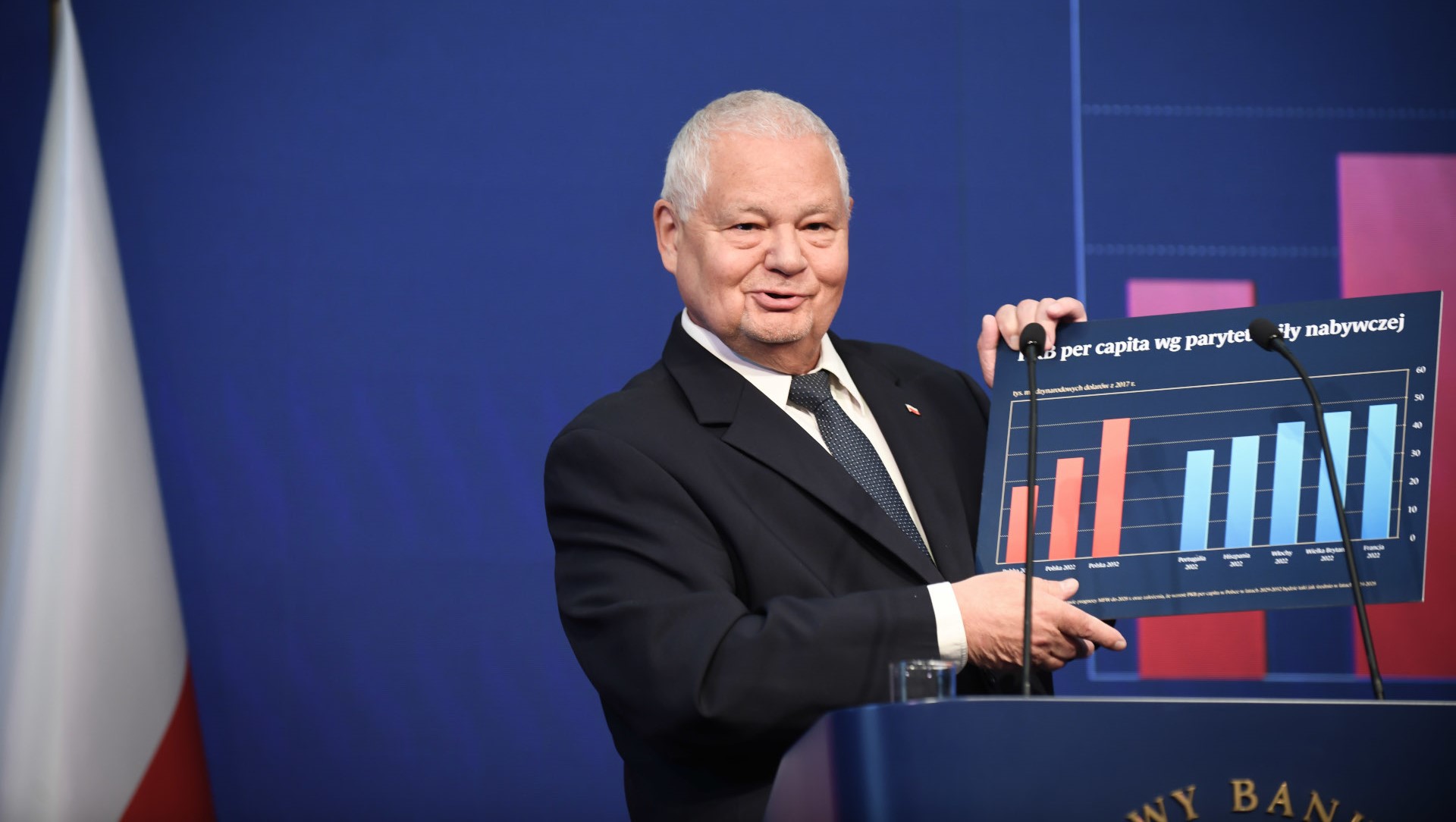
Poland’s central bank chief has accused the media, economics professors and economists working in private banks of lying about inflation for political reasons.
He suggests that, because elections are being held this month, they are trying to present a gloomy picture rather than the “great success” that has been achieved in taming prices.
Chcą szkodzić Polsce i kłamią, po prostu kłamią całą dobę — mówił o mediach podczas swojej konferencji prasowej prezes NBP Adam Glapiński. W podobny sposób skrytykował też część ekonomistów i analityków bankowych. Słowa prezesa NBP wywołały lawinę… https://t.co/Mtfagluyb9
— Business Insider Polska 🇵🇱 (@BIPolska) October 5, 2023
At a press conference yesterday following the central bank’s decision to lower its headline interest rate, its governor, Adam Glapiński, spent the first 40 minutes criticising those who he claimed are misrepresenting the economic situation.
“We have a situation in which the overwhelming majority of the media, including the economic media, are in the hands of foreign capital,” said Glapiński. “They want to harm Poland, and they just lie 24 hours a day, around the clock, all are lying non-stop, not a word of truth.”
His remarks closely reflect the rhetoric of the ruling national-conservative Law and Justice (PiS) party, whose chairman, Jarosław Kaczyński, is a longstanding associate of Glapiński. PiS has often called for a “repolonisation” of the media by removing foreign owners
Most media outlets in Poland are not foreign owned, but many leading national titles are, and they are generally among those more critical of the government. However, polling also shows that they are among the country’s most trusted news sources.
State broadcaster TVP remains Poland’s least trusted major news source, finds an annual study by @risj_oxford, which notes that the station provides „skewed, pro-government coverage”.
The most trusted outlets are RMF FM, Polsat, Radio Zet and TVN https://t.co/nhxEaj9lS0
— Notes from Poland 🇵🇱 (@notesfrompoland) June 15, 2023
Glapiński argued that such media outlets are misleading the public by focusing on the annual inflation figure – which shows that prices were 8.2% higher than a year earlier in September – rather than monthly ones, which have not risen over the past five months.
“This information is something that…foreign capital owning media in Poland does not want to let consumers known,” he said. “I call on all media that are in the hands of foreign capital to stop harming the Polish people, to allow normal, elementary, basic information.”
The central bank governor named a number of outlets by name: TVN, which is American owned; RMF FM, which has a German owner; Radio Zet, which is owned by SFS Ventures, a foreign investment fund, and Agora, a Polish media group that itself has some foreign investment; and TOK FM, which is part-owned by Agora.
A fund backed by George Soros has taken a majority stake in the publisher of one of Poland’s leading newspapers, @rzeczpospolita.
Figures linked to the conservative ruling camp have raised concern about the deal, which comes just weeks before elections https://t.co/Lqd9Qjpdvw
— Notes from Poland 🇵🇱 (@notesfrompoland) August 28, 2023
During his diatribe, Glapiński also accused “so-called bank economists” of reproducing the “message of the day” provided by their foreign bosses and presenting a different picture of reality in private to their spouses than they do in public on television. He also said that economics professors speaking in the media distort reality.
“I won’t get into whether someone paid them to do it, whether someone told them to do it, whether their mind is already working less well, whether they are so ideologically, politically stunted,” he said.
“Professors, please do not repeat such idiocy,” appealed Glapiński. “We are witnessing a great success. I am sorry that this success has now come before the elections.”
Inflation has slowed to 8.2% in Poland this month.
That was below analysts’ expectations and the first time the figure has fallen below 10% since February 2022 – the month that Russia invaded Ukraine.
For more, see our full report here: https://t.co/0FgpUzEIxb pic.twitter.com/dG2zKKLxqX
— Notes from Poland 🇵🇱 (@notesfrompoland) September 29, 2023
Poland will hold parliamentary elections next Sunday. Over the past two years, the PiS government has faced accusations of fueling faster price growth than in other parts of the region through loose fiscal policy, including generous social programmes.
The party is now, however, being accused of artificially lowering inflation through a sharp decline in fuel prices at Polish petrol stations – contrary to global trends – being driven by state energy giant Orlen, which controls more than 60% of the market.
Glapiński acknowledged the allegations but argued that the month-on-month impact of the drop in fuel prices was “0.0”, without explaining further. Data from state statistics agency GUS shows that fuel prices for personal transport were 7% lower in September than in the same month of the previous year.
State oil giant Orlen has appealed to Poles not to hoard fuel amid a drop in prices at petrol stations ahead of October’s elections.
The firm has denied claims it is artificially lowering prices to help the government’s re-election bid https://t.co/YsO1oGUDbJ
— Notes from Poland 🇵🇱 (@notesfrompoland) September 27, 2023
Main image credit: NBP / twitter.com
Alicja Ptak is senior editor at Notes from Poland and a multimedia journalist. She previously worked for Reuters.

